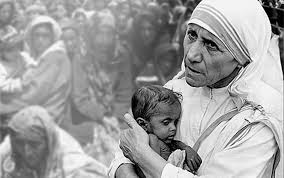
When people hear the word ‘gospel’ the verse that comes to their mind first (if anything comes to mind at all), is probably John 3:16, thanks to the weird guy with those signs at sporting events. I want to clarify the meaning of the word ‘gospel.’ The etymology of the word itself, in its English form is a synthesis of two old English words ‘god’ (gōd, or good) and ‘spell’ (news or story). In Greek the word is ‘evangelion’, (εὐαγγέλιον) which also means ‘good news.’
Now, without getting too complicated, let’s address the difference between the Gospel of Jesus, i.e., what Jesus himself preached according to the Gospels of Matthew, Mark, Luke and John, and the Gospel about Jesus, consistent of most of what follows in the rest of the New Testament (Let’s not even get into Paul’s gospel here. Books have been written about this topic. Go read one of them).
The Gospel of Jesus is found in Luke 4:16-19 where it says;
16 When he came to the village of Nazareth, his boyhood home, he went as usual to the synagogue on the Sabbath and stood up to read the Scriptures. 17 The scroll of Isaiah the prophet was handed to him. He unrolled the scroll and found the place where this was written: (Isaiah 61:1-2a)
18 “The Spirit of the Lord is upon me,
for he has anointed me to bring Good News to the poor.
He has sent me to proclaim that captives will be released,
that the blind will see,
that the oppressed will be set free,
19 and that the time of the Lord’s favor has come.” (New Living Translation)
Hence the Gospel of Jesus has these 5 components:
1. Jesus came to preach Good News to the poor
2. Captives will be released
3. The blind will see
4. Oppressed set free
5. The time of the Lord’s favor has come
This is his message to the people of Nazareth and to the world; that Jesus cares about and identifies with the poor, that those living in real and virtual prisons will be released, they will find wisdom, and the abused, neglected, abandoned, marginalized, ostracized will be set free from their pains, and the time of the Lord’s favor (Year of Jubilee, Leviticus 25) has come for them, which happened once every 50 years, in which slaves and prisoners would be set free, debts would be forgiven and the mercies of God be realized by all.
THIS is the gospel of Jesus.
It’s what Jim Wallis of Sojourners Magazine calls the (Christian) Nazareth Manifesto. Here, in this excerpt from a 2008 interview with Krista Tippett on her podcast ‘Speaking of Faith’ Jim Wallis says,
“Jesus’ first sermon at Nazareth. I call it his mission statement. He says, “The spirit of the Lord is upon me,” it’s His Nazareth manifesto. “Because He has anointed me to preach good news to the poor.” That’s what it says, “good news to the poor.” And so, I want to say, whatever else our gospel is, … if our gospel is not good news to the poor, it’s simply not the gospel of Jesus Christ. Conservative Evangelicals in America have created a Jesus who is pro-rich, pro-war, and only pro-American. That… is a distortion, a misrepresentation of the Jesus of the Bible.” (to read the full transcript or to hear the podcast click here)
God is not an American! (God is Korean! Haha!!)
Christians are disciples of Jesus Christ, and no other not Paul, not prosperity. As disciples, we are supposed live out the gospel Jesus preached; the gospel of hope, healing and wholeness. If we are living out some other gospel then we cannot say that we are disciple. But sadly, this is not where the Christian church is today.
(Part 2, this Thursday)